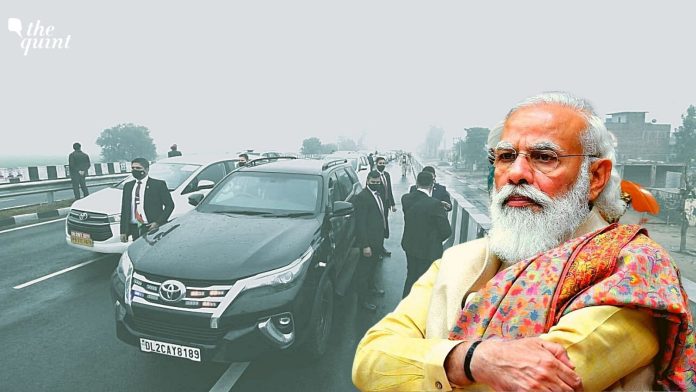- At the outset, let there be no doubts whatsoever that the highest executive office of the country headed by the Prime Minister holds an extremely important Constitutional post whose security must be no less than foolproof. With the growing threat perceptions for those heading the Country increasing manifolds, the security apparatus entrusted to secure the safety of the high posts should have several layers to extend desired levels of protection. It is a no-brainer that the Indian Prime Minister comes under the category of highest security protocol where any remotest chance of breach should be non-existent.

PC: Arvind Yadav
- Unfortunately, what transpired in Punjab during the Prime Minister’s recent campaign visit defies logic and common sense. The security breach observed in Punjab is not only unprecedented but also raises serious questions as to how it was allowed to pan out in the first place. As you know, Punjab is an extremely crucial Western border state with our arch-enemy Pakistan as a neighbour. The PM’s cavalcade was struck near the border area for more than 20 minutes speaks volumes about the gravity of the situation. As a corollary, the Punjab government has set up a three-member committee to probe the security lapse with a deadline of three days.
- The three-member committee comprises two representatives from the judiciary and a serving bureaucrat tasked to examine where there were lapses that prevented seamless coordination between the security establishments at both levels of government. It is the right step since the security breach was extraordinary as India is confronted with external security challenges which call for constant vigilance. Against this backdrop, the committee formed should be thorough and scrupulous while it goes about unearthing the facts. It is another matter altogether when political rhetoric assumes significance, especially in election season, which can be overheated most of the time.

PC: Debayan Roy
- However, the matter of security needs to be dealt with at a different level where any compromise is out of the question. Remember, implementation of security measures lies with the permanent executive that is the common thread that binds different constituents of a federal polity. Needless to mention, this part of the executive needs to work coherently to prevent lapses of the kind we saw in Punjab. Further, findings of the committee must hold relevance across states and the lessons need to be shared widely. As is its wont, political parties have upped the rhetoric ante and conspiracy theories are abounding emanating from the BJP and the Congress fronts.
- We know how social media amplifies conspiracy theories that often manifest as violence on the ground. Note that India’s security needs will be well-served if politicians observe restraint in public comments and let the professionals carry out their job. A country’s security umbrella is a permanent structure and as such, it requires the creation of an institutional environment that nurtures professionalism in the permanent executive. In doing so, regardless of the political party in office either at the Centre or in a state, India’s security interests will never be compromised.






